Expanding Dhk-Ctg Highway: Impasse finally clearing up
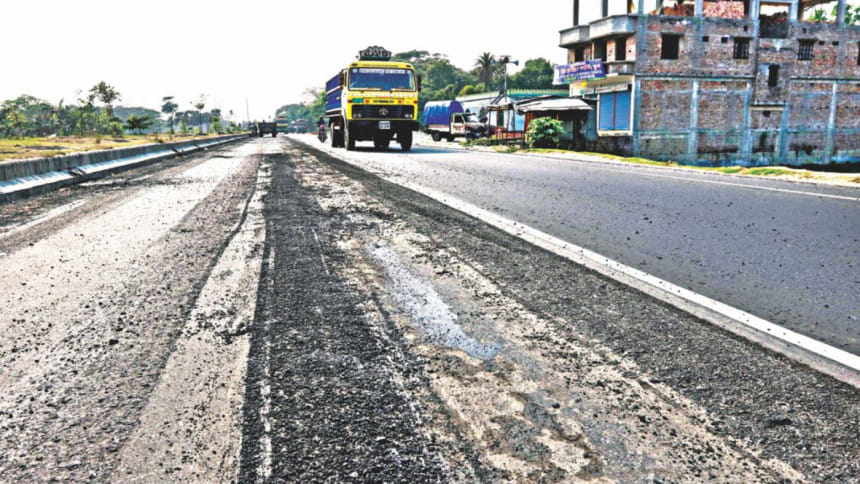
An impasse over the upgradation of Dhaka-Chattogram Highway seems to be over as the Roads and Highways Department has started working to determine where the road will have six lanes and where it will have eight.
A consortium of consultants from home and abroad has already started a feasibility study and is expected to complete the task in 10 months. It will take another eight months to draw a detailed design for widening the highway, considered the economic lifeline of the country.
The Asian Development Bank is expected to fund the project, which is at its 2025 financing pipeline. A co-financier for the scheme, which will require large sums of money, may be needed.
Indecisions, short-sightedness and piecemeal measures have delayed the upgradation of the 232-km highway for a decade.
Considering the fast-growing traffic between Dhaka and Chattogram, the government in 2013 decided to build an expressway. It dropped the plan in October 2019 and decided to widen the existing highway.
But it took three and a half years for the authority to launch the feasibility study.
"The impasse is apparently over. The highway will mainly be a six-lane one. However, there will be eight lanes at some points. The feasibility study will decide which places need eight lanes," RHD Chief Engineer Md Ishaque told The Daily Star yesterday.
There will be service lanes along the entire highway, he added.
Over 90 percent of Bangladesh's $130 billion foreign trade depends on Chattogram Port and the current four-lane Dhaka-Chattogram Highway.
In 2009, the number of vehicles on the highway hovered between 20,000 and 25,000. Trucks and lorries accounted for 40 percent of the vehicles. By 2030, the number of vehicles may reach 66,000, according to an ADB document.
STUDY STARTS
The RHD on April 16 hired a consortium of five companies led by the SMEC of Australia to carry out the feasibility study and draw the detailed design, said Project Director Mohammad Shabbir Hasan Khan.
As per the contract, the companies will get Tk 44 crore for the tasks, he told The Daily Star yesterday.
The feasibility study and the detailed design are being done under an ADB-funded project titled Technical Assistant for Road Transport Connectivity Improvement Project Preparatory Facility.
Whether it will be implemented under the usual financing model or a Public Private Partnership model has yet to be finalised, he said.
The consultants will also recommend the financing modality. The Asian Infrastructure Investment Bank (AIIB) has expressed interest to be a co-financier, he said, adding that finance would not be an issue for the project.
Physical work is expected to start in late 2025, he added.
In March 2013, the Cabinet Committee on Economic Affairs approved a Public-Private Partnership project to build an expressway. The government signed a deal with the ADB the following month to carry out a feasibility study and make detailed designs at a cost of Tk 97.87 crore.
Over two years later, the study was placed before Prime Minister Sheikh Hasina, who agreed to build the expressway that would have elevated sections. The estimated construction cost was $2.5 billion, sources said.
Meanwhile in October 2016, the Bangladesh Bridge Authority took an initiative to build an elevated expressway between the two cities. Later, the road transport and bridges minister ordered the authority to drop the initiative.
But the prime minister in October 2019 ordered cancellation of the expressway project. She asked for construction of service lanes on either side of the four-lane highway, sources said.
In October 2021, the Cabinet Committee on Economic Affairs formally scrapped the plan for the expressway. Abdus Sabur, then chief engineer of the Roads and Highways Division, told this correspondent that the prime minister was in favour of building a high-speed rail system along the highway.
In 2017, Bangladesh Railway carried out a feasibility study and made a detailed design at a cost of Tk 110 crore.
The prime minister approved a 224.64-km long Dhaka-Narayanganj-Cumilla-Feni-Chattogram route which would bring down the travel time from the capital to the port city to just 55-73 minutes. This will cost Tk 93,350.93 crore.
But the government decided to go slow because the cost was too high.
Asked about the delays, RHD Chief Engineer Md Ishaque said, "A major policy decision was involved here. It is not possible for me to comment on it."

 For all latest news, follow The Daily Star's Google News channel.
For all latest news, follow The Daily Star's Google News channel. 

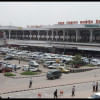

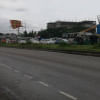

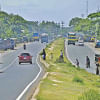

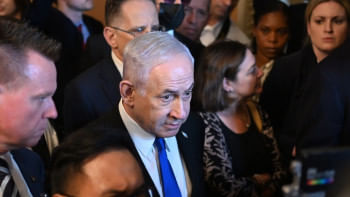
Comments